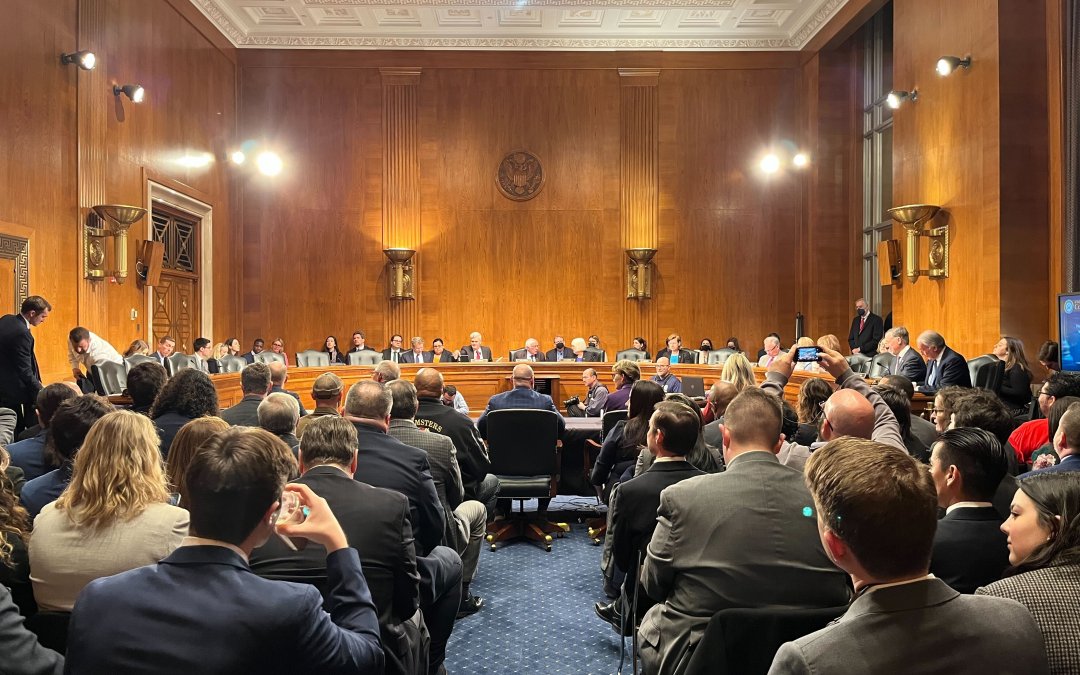WASHINGTON – Sen. Bernie Sanders (I-Vt.) kept up the pressure on attacking corporate interference to unionization on Wednesday, a day after he secured the voluntary cooperation of Starbucks CEO Howard Schultz to testify before a Senate committee.
Sanders, chair of the Committee on Health, Education, Labor and Pensions, better known as the HELP Committee, was planning to hold a vote on Wednesday to subpoena Schultz to testify after the CEO had initially refused to appear. But Sanders announced Tuesday night that Schultz would voluntarily testify on March 29.
Still, Sanders was highly critical of Starbucks, saying that the company had thwarted numerous union efforts at various coffee branches and stymied numerous efforts by workers.
“Despite the fact that over 280 Starbucks coffee shops have successfully voted to form a union over the past year, Starbucks has refused to negotiate in good faith to sign a single first contract with their employees,” Sanders said in a statement.
On Wednesday, Sanders emphasized the importance of the committee hearing as a means to address the challenges faced by Americans in a society where an unfair and unusual economy exists.
“In America today, from coast to coast, we have people by the millions, working for starvation wages,” Sanders said in his opening statement.
Liz Shuler, president of the AFL-CIO, America’s largest federation composed of 60 unions, called for more federal action to support workers’ legal rights, especially to address the pushback from employers against unionizing.
In her testimony, Shuler mentioned corporations such as Starbucks, Delta Airlines, and Apple, which she said have had some of their most profitable years in history but have failed to provide fair pay to their workers. She emphasized that unions are the strongest means for employees to fight for justice and equity in the workplace.
“What do workers have to show for fair pay?” Shuler asked.
Mary Kay Henry, the international president of the Service Employees International Union, echoed those worries, saying that “working families all over this country are at a disadvantage.”
But several GOP members of the committee questioned whether more legislation was necessary to protect unions and instead called for an end to so-called “union-security” agreements, which require all employees in a bargaining unit to become union members.
Sen. Markwayne Mullin (R-Okla.) gave his own experience as an example, having started a plumbing company with only six employees though now employs around 300 individuals.
Mullin recounted an incident from 2009 when some organizations attempted to unionize what he said were “his satisfied and well-compensated workers.” Mullin suggested that the unions were hampering his company, which had successfully bid for jobs that would have otherwise gone to unionized firms.
Mullin questioned Sean O’Brien, general president of the International Brotherhood of Teamsters, on whether he had been able to create any jobs and hire people.
O’Brien said no but said that the union creates create opportunities to hold “greedy CEOs accountable.”The March 29 committee hearing with Schultz will likely result in a similar faceoff between Sanders and the Starbucks CEO. Starbucks said in a letter to the committee on Tuesday that it looks “forward to continuing to work with the Committee to foster productive dialogue.”

